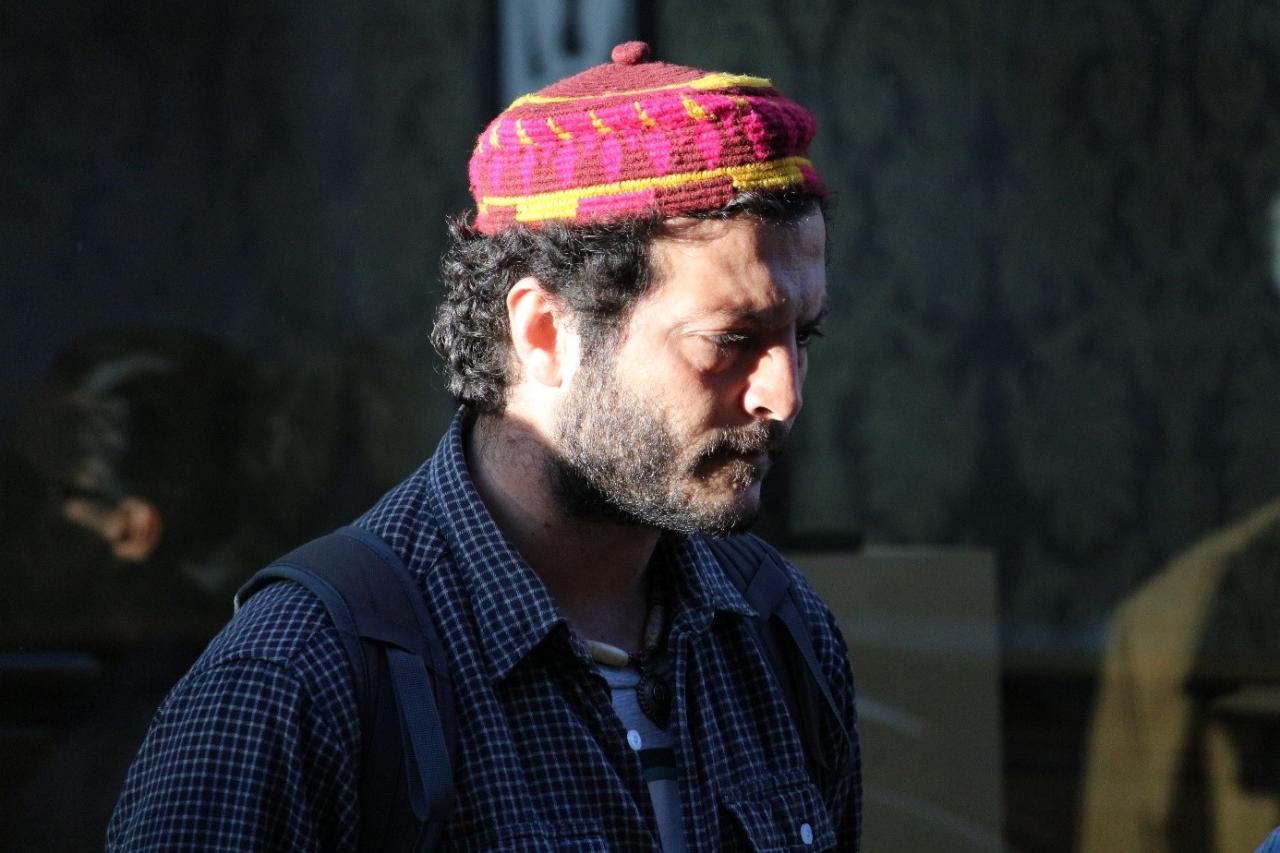Education Across Borders: Yahya's Journey of Learning and Activism
Yahya was born in a Syrian village and moved to Aleppo at 13 for his secondary education, marking the beginning of his interest in exploration and learning. He pursued a degree in English, followed by a master's degree in Education. During the Arab Spring in 2011, he protested against Bashar al-Assad's authoritarian regime. Despite the peaceful nature of these demonstrations, Yahya and his fellow protesters faced violent repression. Unwilling to partake in the violent confrontations, Yahya decided to leave Syria in 2012.
"When we are forced to leave, we always ask the same question: where can we go?" Yahya said. While the majority of migrants moved to nearby regions, Yahya chose to go to Georgia, a country he had already visited. There, the Ministry of Education had set up a program to improve English in the country. Thanks to his language qualifications, he was able to continue working as a volunteer English teacher in the Teach and Learn Georgia program. He later joined a university in Istanbul as an English teacher where he stayed for three years before obtaining a grant for the Central European University in Budapest.
His stay in Budapest coincided with the 2015 migration crisis. He witnessed scenes that touched him deeply, particularly when he saw thousands of people camped outside railway stations, blocked by Hungarian authorities who were taking advantage of their presence to obtain subsidies from the European Union. This spurred Yahya to delve into migration issues more deeply. In Budapest, he obtained a master's degree in public policy specializing in education and migration issues. He focused on how to design educational programs adapted to the challenges of migration, aiming to develop methodologies enabling migrants to access education despite travel difficulties. He is also involved with MIGSZOL (Migrants Solidarity), an activist group that helps migrants who camp outside railway stations.
Yahya and his group wanted to go beyond immediate aid and develop something new. As a teacher, Yahya, knew the importance of continuous learning for migrants. Many migrants lack the financial capacity and time to complete their studies. To address this issue, they set up the OLIve (Open Learning Initiative) program at the Central European University. This one-year bridging program prepares students by offering intensive English courses and courses in the specialties of their choice (political science, anthropology, psychology, etc.), enabling them to apply for bachelor's and master's degrees at partner universities across Europe.
After two years in Budapest, Yahya decided it was time to return to studies. He wanted to write a thesis on a subject close to his heart: the forced migration of the 'Doms' (a marginalized Syrian-Lebanese community). To do this, he decided to move to Paris, despite the language barrier, as Doms communities had settled in the north of the Paris region, allowing him to conduct a detailed ethnographic study. In France, he followed a program for exiled students, which enabled him to learn French while working with an English-speaking thesis supervisor at EHESS (School of Advanced Studies in Social Sciences). Yahya used an action research method, not working 'for' the Doms community but 'with' them. He volunteered with the "la petite École" project in Saint-Denis, which works with Syrian Doms children who do not attend school. Then he obtained a doctoral contract working with the Association ASKOLA to help allophone children in precarious situations in Seine-Saint-Denis to access school and support them in continuing their education.
However, as many Dom families had very unstable lifestyles, moving between squats and social hotels, Yahya also helped in identifying and connecting these people with associations in Seine-Saint-Denis that could provide necessary services.
Building bridges: Yahya Al-Abdullah's involvement to Support Migrants through Education and Research
Since his departure from Syria, Yahya Al-Abdullah has never stopped traveling to satisfy his curiosity and support migrants through his involvement with associations and university research. On the strength of his experience, he strongly emphasized the importance of reception and hospitality, which he sees as an essential stage in the migratory process and one that will have a major influence on the migrants' subsequent journey. According to him, the European migratory crisis stemmed not from the influx of migrants, but from the inability of European countries to adequately receive them with humanity and respect for fundamental rights. These people who seek refuge in Europe are quickly faced with a mountain of administrative procedures, which they have to deal with without any support to assert their rights. Not to mention that they suffer a lot of discrimination, further reducing their chances of accessing information and integrating successfully.
Yahya’s journey and his advocacy work underscore the critical need for better support systems and inclusive policies for migrants. He has been a vocal advocate for the importance of education in the integration process. The OLIve program and the School accompanying work of ASKOLA, for instance, stands as a testament to his belief that education can significantly enhance migrants' opportunities and help them integrate into their new societies. By providing tailored educational opportunities, Yahya and his colleagues have helped many migrants pursue higher education and improve their prospects.
His ethnographic work with the Doms community in Paris highlights another aspect of his commitment: understanding and addressing the unique challenges faced by marginalized migrant groups. Through action research and community engagement, Yahya has accompanied over 200 children and teenagers with their schooling and helped bring attention to the plight of the Doms, advocating for their rights and better access to services.
Conclusion
Yahya Al-Abdullah's life and work highlight the transformative potential of education and the importance of supportive and inclusive policies for migrants. His journey from a small Syrian village to various Asian and European countries showcases his resilience and dedication to making a positive impact. Yahya’s efforts in developing educational programs and his research on migration issues have provided valuable insights and practical solutions to support migrant communities. His advocacy work underscores the need for humane and respectful reception processes in Europe to ensure that migrants can access their rights and integrate successfully. Through his experiences and initiatives, Yahya continues to bridge gaps and foster inclusive societies, demonstrating the profound difference that committed individuals can make in addressing global migration challenges.
Article written by Sofiane Youssef


